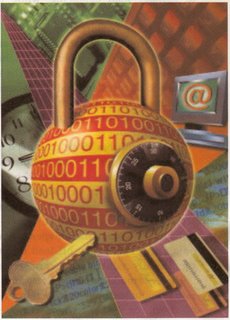
September 14, 2006
Students as Creators and Contributors
Today’s generation has an opportunity like none before it. The opportunity to freely create and contribute to society and a global audience from the confines of their own home, school, library or any other place they can connect into the network of information.
It’s this power of creating and contributing that draws our students to the rapidly growing sites of Myspace, Facebook, Xanga, and YouTube.
The Wall Street Journal reported some interesting data on the popular video uploading site YouTube. (Via Micro Persuasion)
* In a single month the number of videos on the site grew 20% to 6.1 million
* YouTube has some 45 terabytes of videos
* Video views reached 1.73 billion
* 70% of YouTube's registered users are American, roughly 50% are under 20
* The total time people spent watching YouTube since it started last year is 9,305 years
Students today do not want to receive information, they want to create it. They want to be a part of a social-network not just read about it. This is why sites like YouTube and Myspace are so popular. These spaces were designed for the purpose of allowing people to create information, not just receive it. Brian Crosby had a posting earlier this week on the Learning is Messy blog in which he states:
One of the issues I believe is that kids are perceived by society as only having the potential to contribute to society sometime in the future. If kids were appreciated for what they can contribute now, and that “contribution” was valued by society, perhaps society would be more willing to “invest” more substantially in them at an earlier age. One of the transformative aspects of technology is that it allows students to produce finished products that others have access to and can use: Other students, other members of the local community and members of the global community.
We are in a place and time when creating and contributing to a worldly audience is easier than ever; whether through the written media (blogs and wikis), spoken media (podcasting), or the visual media (videos). It reminds me of the educational idea:
Tell me and I forget
Teach me and I remember
Involve me and I understand
Creating is doing and doing with a purpose is contributing to society. So as educators how do we harness this power in positive, educational ways? We listen to our students.
Morning after morning my middle school students come in and head to one web site…YouTube. YouTube is the new entertainment center for teens, and I don’t blame them. Spend some time there and you soon find the minutes flying by as you get deeper into viewing what people have created and contributed to this social-network. Where was this when I was in school? I remember having to run to the computer lab to make sure I got one of the copies of Oregon Trail…the original Oregon Trail!
Watching this day after day, I decided to harness this power of creativity and have my students create digital stories. Using the free Microsoft application Photo Story 3 and the tutorials created by David Jakes, my students taught themselves how to use the program to create their stories for class. Then using the K12 group within YouTube that Miguel Guhlin created, the students uploaded the videos to share with a worldly audience. Students as creators contributing their new knowledge to the world.
Listen to your students; find what new web tool, web site, or social-network excites them. Find a way to harness their excitement of being creators and contributors and bring that excitement into the classroom and allow your students to create something that teaches or tells a story to a global audience.
No comments:
Post a Comment